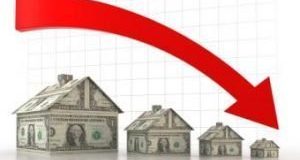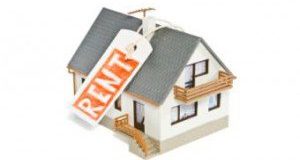A new report shows that not all major U.S. markets are basking in escalating home prices. Nine metros are actually seeing median prices drop. Metros in Texas and the South comprise all but two of those markets.
Read More »Risk Standards Hits Early-2000s Levels
Mortgage lenders are taking increased credit risks similar to those of the early 2000s, according to a new report released on Tuesday. The level of credit risk taken by lenders in Q1 of 2017 was about the same as the average risk taken between 2001 and 2003. According to the report, the shift toward riskier lending standards is a result of declining refinances, rising mortgage rates, and increased investor, condo, and co-op share of purchase loans.
Read More »Cost of Living Rises in Tandem with Home Prices
Cost of living is on the rise across the country, according to a report released on Monday that lists the top 10 cities in the country with the fastest rate of increase in the cost of living over a one year period between 2016 and 2017. The study used two main metrics to rank the cities: the increase in the cost of living index—food, rent, utilities, and transportation costs. It also measures the increase in the amount of income that was needed to “live comfortably,” which is defined by the amount of money a household has to make in a year to account for necessities, savings, and discretionary spending.
Read More »May Home Sales Hit Record High
Despite the housing shortage and April’s drop in home sales, the housing market not only returned to seasonally high sales, but set a post-recession record— the strongest home sales in the last nine years of the report. According to the National Housing Report, May sales increased 20.6 percent from April and 4.3 percent from May 2016. The only metro considered to be a buyers market in the U.S. for May was Miami, Florida, which was only 0.1 over a balanced market between buyer and seller.
Read More »Low-Income Homeowners Feeling Same Struggle As Renters
Some may think owning a home means having more financial stability than renting, but a recent report says low-income homeowners are just as burdened by housing costs as renters. Housing shortages have sparked increasing home prices over the last few months and a higher share of homeowners and renters are facing affordability issues— a quarter of renters spending at least half of their income on rental housing compared to the 10 percent of homeowners. The generally lower income of renters normally explains this, but at a closer look at the numbers, they found that homeownership doesn’t protect low-income homeowners.
Read More »Falling Home Starts Could Be Because of Warm Winter
It’s now the third month straight that U.S. homebuilding has fell—considering the U.S. is currently in a housing shortage, this isn’t good news. According to the latest report from the U.S. Census Bureau, this is the lowest level housing starts have been at in eight months. The biggest drop in housing starts was in the South and Midwest, while the West slightly rose and Northeast stayed stagnant.
Read More »Labor, Lot Shortages Cause Builder Confidence to Falter
Lot and labor shortages are causing home builder confidence to falter—particularly in the single-family market. Builder confidence dropped two points in June, while overall construction starts fell 5.5 percent across the nation. Single-family production fell 3.9 percent in May, and multifamily declined 9.7 percent—nearly three times as much.
Read More »Gap Widens Between Most, Least Expensive Cities
Home price appreciation rates are pretty disparate across the nation, according to a new report released on Friday. In fact, while 16 percent of U.S. markets saw housing prices jump 40 percent since the year 2000, another 30 percent of cities actually saw prices decline over the same period. Nominally, prices rose in 97 out of the nation’s 100 biggest metro areas last year. A result of high demand and tightening supply, affordability is on the downslope, too. According to the report, about 19 million U.S. households spent more than half of their annual incomes on housing in 2015.
Read More »Steep Price Jumps Can’t Keep Buyers Down
The ever-climbing housing prices don’t seem to be holding buyers back. In fact, according to recent data, three of the nation’s biggest cities—Baltimore, Chicago, and Washington, D.C.—are all seeing steep sales inclines over the year. New data shows sales volume in Baltimore is up 10.2 percent since last May—a jump of more than $1.2 billion. In Washington, D.C., volume’s up 7 percent over the year, or $3.1 billion, and in Chicago, sales transactions rose 6.2 percent for the year. Days-on-market is another stat that has steep increase as of late. In Chicago, it fell from 87 to 77 over the year, while in Baltimore and D.C., it dropped to 19 and 10 days. Baltimore’s 19 days-on-market is the lowest monthly level the city’s seen in 10 years.
Read More »First Time Homebuyers: Where’s the Value?
Many different factors come to mind when looking for a home. Good schools, commute time, low crime, and location of places of interest nearby bring overall convenience for the homeowner. A recent report examined the nation’s 100 biggest metros to determine where in the U.S. first-time homebuyers would find the most value.
Read More » theMReport.com Your trusted source for mortgage banking news
theMReport.com Your trusted source for mortgage banking news









